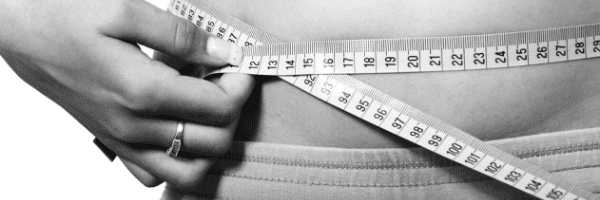In the struggle to maintain a healthy weight many of us find there seems to be some hidden roadblock to our progress. Despite eating well and exercising regularly, sometimes weight loss seems impossible. Rest assured there are often underlying hormone issues that conspire to “pack on the pounds”. Understanding these hormones is an essential step in helping with weight loss.
The Hormone Weight Promoters
Cortisol is the first troublemaker. As our main “stress” hormone cortisol is made by the adrenal gland and readies the body for battle, by increasing our blood pressure and blood sugar, and controlling inflammation. It helps the body react to our “fight or flight” hormone adrenaline. These are good things cortisol does to help us adapt to stressful situations.
Chronic stress, however, allows cortisol to start wreaking havoc with the body. It starts to cause the break down of muscle and high blood sugar spikes which leads to higher insulin levels (more on that later). It will impair metabolism by lowering or interfering with other hormones such as thyroid, testosterone and growth hormone. It will depress serotonin leading to low mood, fatigue and increased appetite, while messing up sleep patterns.
Insulin is our second fat producing hormone. Normally insulin is made in response to food intake and allows blood glucose to enter our cells for energy production. It will also instruct glucose to be stored for quick use later in the form of glycogen. Beyond that insulin directs glucose to be stored as fat, which is our most efficient long-term energy storage.
Problems with insulin arise when we starting losing our sensitivity to insulin’s positive effects, which is known as “insulin resistance”. Our body compensates by making increasing amounts of insulin, which leads to impaired ability to break down fat and increased fat storage around the hips and abdomen. Insulin will also turn off a friendly hormone called leptin, which is made by fat cells and tells our brain we are not hungry.
The third fat promoting hormone is estrogen and it affects both men and women. Specifically, too much estrogen is the problem, but too little can also be an issue. Many women go through life with estrogen dominance, characterized by heavy cycles, with premenstrual symptoms such as water gain, breast tenderness, irritability and anxiousness. This is usually due to not producing enough progesterone to balance estrogen, overproduction of estrogen or exposure to foreign estrogens. At any rate, the excess estrogen will promote fat accumulation, especially around the hips and abdomen, leading to the “pear” shaped body.
For men, excess estrogen occurs commonly with aging. As a man’s testosterone level falls the normal byproduct of estrogen often rises. This will cause fat accumulation around the abdomen. At menopause estrogen levels in women plummet and the body tries to make more estrogen from, guess where, fat cells. This is part of the reason so many women pack on weight the first year after menopause.
Ghrelin is the last fat promoting worth mention. This appetite stimulator is made in the stomach and pancreas and tells the brain we are hungry, slows metabolism and increases fat accumulation in the abdominal area. Interestingly, ghrelin stimulates the same pleasure areas in the brain as sex, drugs and chocolate – one can appreciate why food can be such a powerful reward! With weight gain people become more and more sensitive to ghrelin leading to a vicious cycle of constantly feeling hungry.
Taming the Weight Promoters
So how do we get control of these fat-promoting hormones? There are some simple changes in lifestyle that can make a huge difference and help with weight loss.
Cortisol elevations can be caused by any stress, be it physical or mental. Learning to manage stress is a critical part of a weight loss program. Many techniques are effective, such as casual exercise, meditation, acupuncture, or mellow activities such as yoga or tai chi. Simply taking a few 5 minute “breathers” during the day can measurably lower cortisol levels. We often recommend herbal supplements that help modulate the cortisol stress response and heal overly taxed adrenal glands.
High cortisol levels in the evening, when cortisol is supposed to be at its lowest, will lead to poor sleep. Poor sleep and stress will also increase ghrelin levels leading to hunger. Ironically, we need ghrelin to help enter the restful stage 3 of sleep. The summary point is “go to bed calm and with an empty tummy”.
Insulin resistance is best treated by eliminating foods and food combinations that cause insulin to spike. Cut out sugar and high-glycemic foods. Mix complex carbohydrates with a little fat and protein, at every meal.
If you have estrogen dominance or see physical signs of estrogen with aging, find help from a professional that is well trained to analyze and correct these hormone imbalances. Be sure to get restful sleep, manage stress, insure proper gut and liver health, and optimize diet to make your hormones work better.
I have found that successful weight loss depends on more than wishful thinking and the old “calories in = calories out” mentality. Certainly proper nutrition and exercise are essential, but without hormone balancing weight loss is an uphill battle.
Author
Scott Rollins, MD, is Board Certified with the American Board of Family Practice and the American Board of Anti-Aging and Regenerative Medicine. He specializes in Bioidentical Hormone Replacement, thyroid and adrenal disorders, fibromyalgia and other complex medical conditions. He is founder and medical director of the Integrative Medicine Center of Western Colorado (www.imcwc.com) and Bellezza Laser Aesthetics (www.bellezzalaser.com). Call (970) 245-6911 for an appointment or more information.

